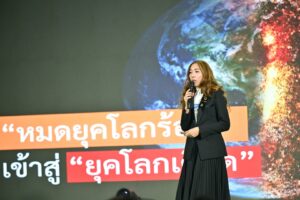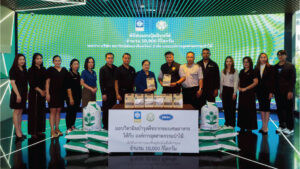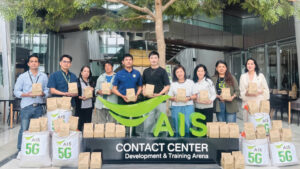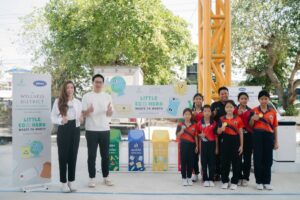
Treasury Asset Development, Oklin, and the Royal Thai Armed Forces deliver 10,000 kg of food-waste-derived plant nutrients to green areas in Saraburi.
Treasury Asset Development, Oklin, and the Royal Thai Armed Forces deliver 10,000 kg of food-waste-derived plant nutrients to green areas in Saraburi.
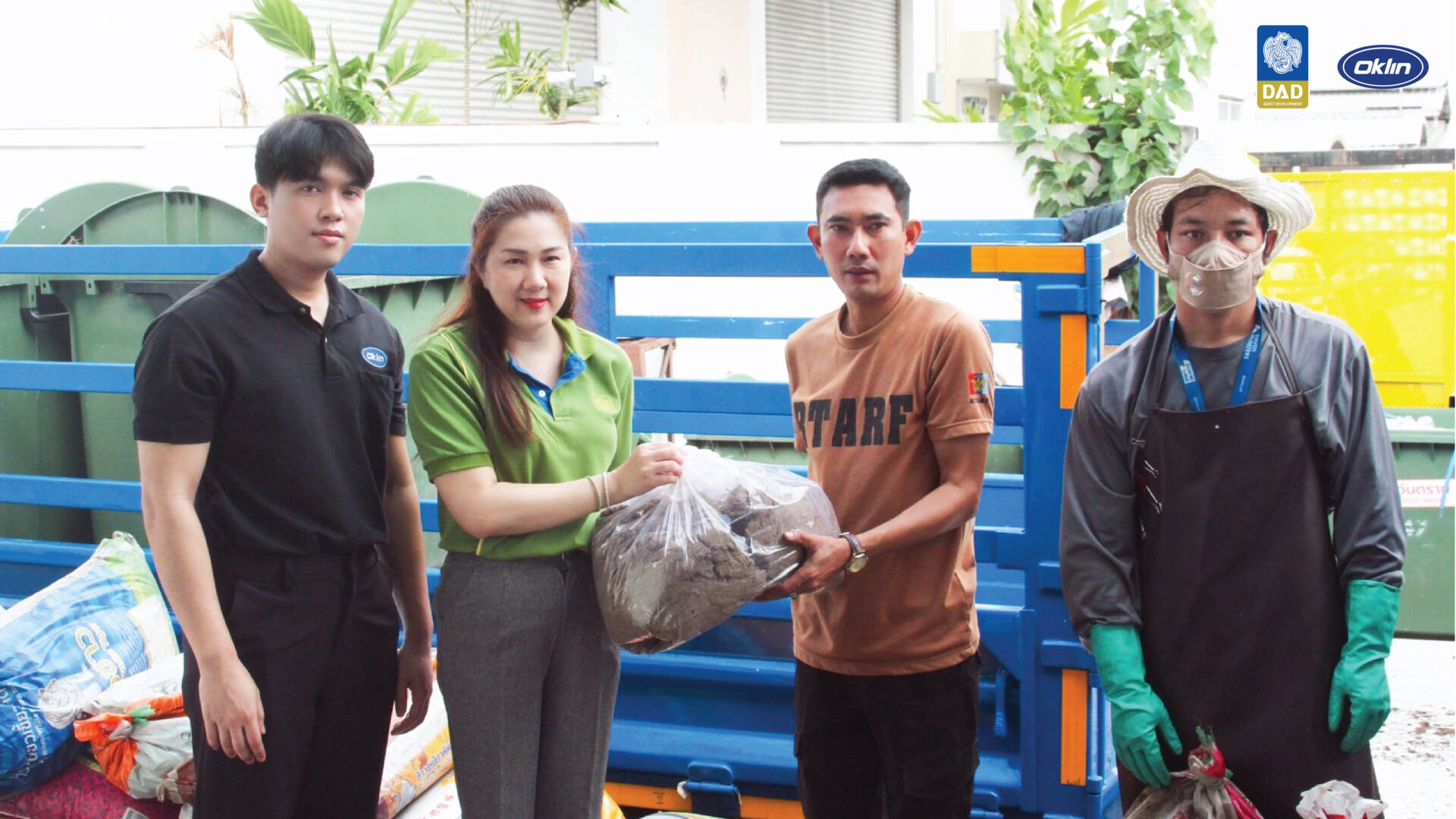
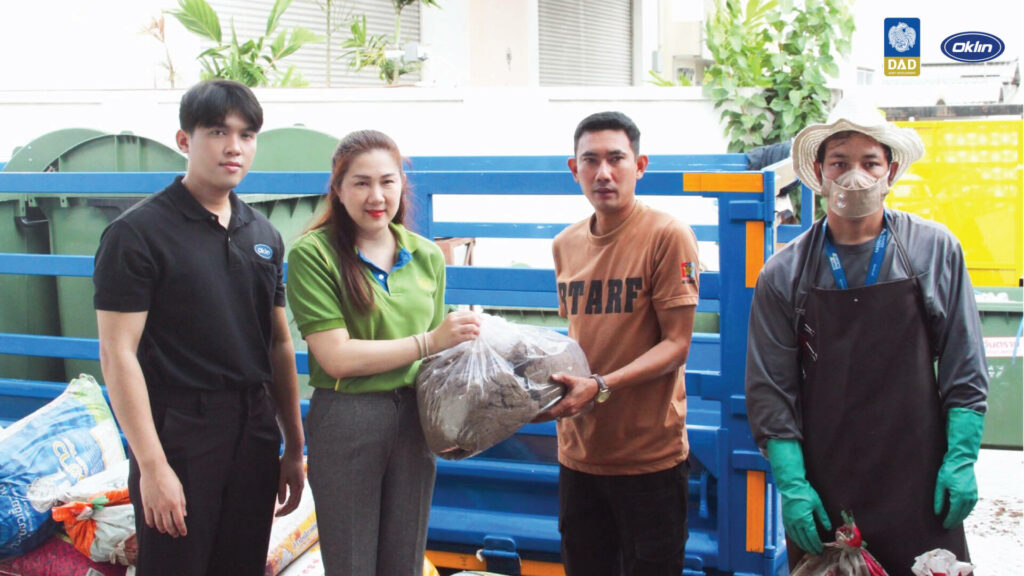
Treasury Asset Development Co., Ltd., in collaboration with Oklin (Thailand) Co., Ltd., continues its mission of promoting sustainable environmental management through the delivery of 10,000 kilograms of plant nutrients derived from a total of 58,823 kilograms of food waste, which was carefully sorted and processed using Oklin’s advanced composting technology at the Government Complex Chaeng Watthana.
This initiative was made possible with the logistical support and coordination from the Royal Thai Armed Forces Headquarters, enabling the efficient and timely transportation of the plant nutrients to multiple target areas.
Turning food waste into plant nutrients: Transforming waste into valuable resources
Oklin’s food waste composting machines are capable of reducing waste volume by 80–90% within just 24 hours, transforming organic waste into high-quality plant nutrients rich in beneficial minerals for soil. These nutrients help restore soil structure, enhance fertility, and support the healthy growth of plants in green spaces.
The 10,000 kilograms of plant nutrients from this project were distributed as follows:
3,000 kilograms were used in environmental activities by relevant agencies, coordinated by the Royal Thai Armed Forces Headquarters.
7,000 kilograms were delivered to Mittraparb Forest Plantation, located in Mittraparb Subdistrict, Muak Lek District, Saraburi Province, under the management of the Forest Industry Organization (FIO).
Reviving green spaces and increasing carbon sequestration capacity
Mittraparb Forest Plantation is a key economic forest and ecological area in Saraburi, serving as a vital biodiversity reserve and carbon sink. The project aims to rehabilitate trees in the area, strengthen the ecosystem, and reduce atmospheric carbon dioxide accumulation.
This collaboration exemplifies effective coordination between the public sector, private enterprises, and the military, driving national environmental policy into real action. It also supports the achievement of the Sustainable Development Goals (SDGs), particularly in the areas of waste management, carbon reduction, and natural resource conservation.
Advancing the circular economy through integrated food waste management
Beyond reducing landfill waste, this project contributes to the circular economy by converting discarded food into a valuable resource. The process begins with waste separation at the source within the government complex, followed by closed-system biodegradation using controlled temperature, moisture, and odor filtration.
In addition to its direct environmental benefits, the initiative promotes public awareness and sets a precedent for cross-sector collaboration in addressing food waste – a pressing global issue.
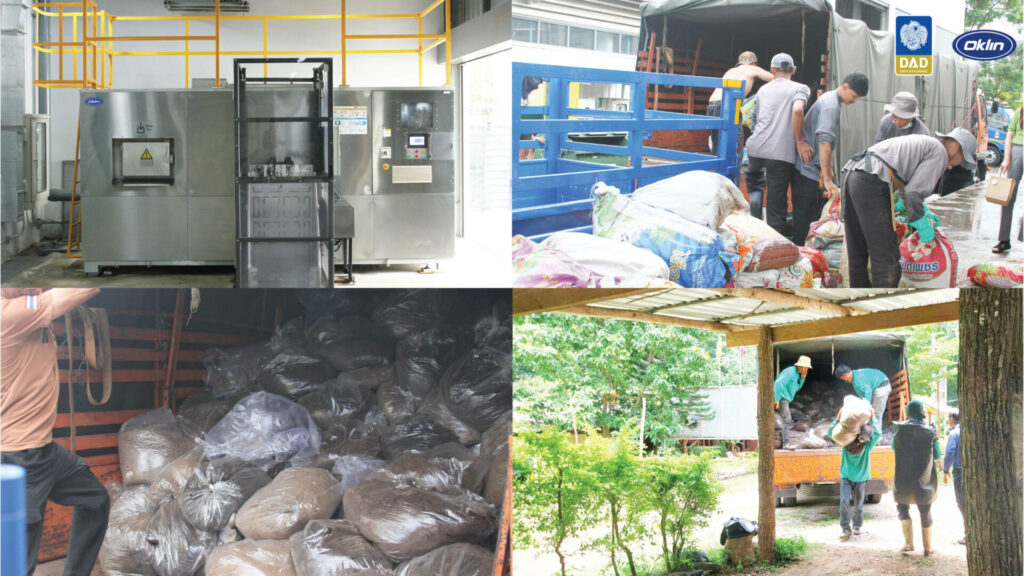
OKLIN – Eco-Friendly Food Waste Composter
Turn food waste into dry fertilizer within 24 hours!


